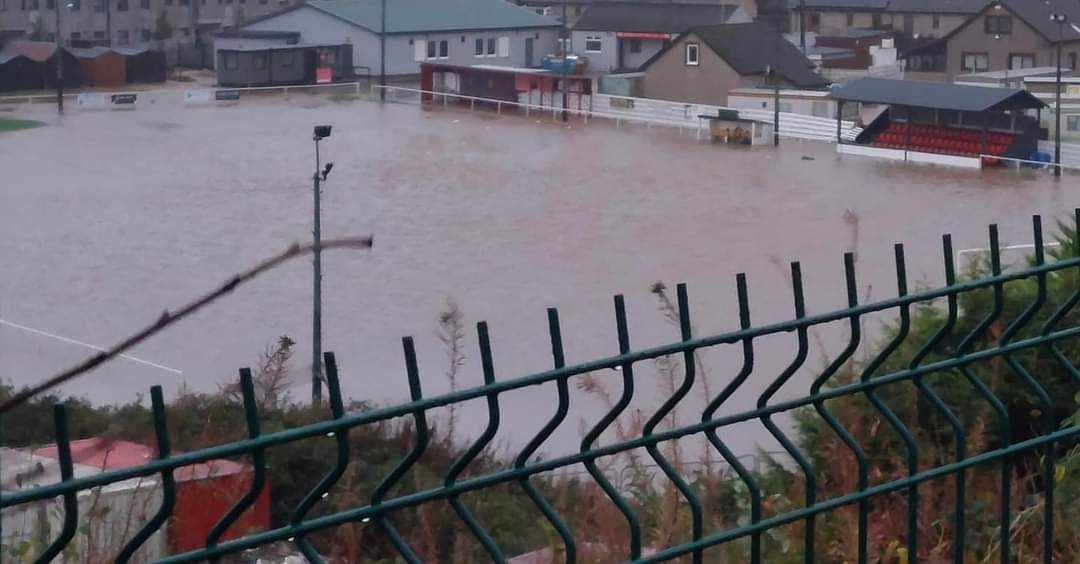Greetings all,
There’s a smorgasbord of stories below from the last fortnight. Since the last round-up, the newsletter has also had a guest post on the new sustainable travel charter. Do check it out if you haven’t yet. I’ll be popping along to the Net Zero Festival next week. Drop me a line if you are too. And without further ado, let’s get going
In Bangladesh
The Bangladesh Environmental Lawyers Association and other campaign groups had their banner taken away by security while at a game last week protesting against FIFA-supported plans. These would see 30,000 trees chopped down in a reserve forest which is home to the endangered Asian Elephant. The campaign groups are asking FIFA for an alternative site to be found. Check out their video here.
Fiji, Samoa and Tonga
In other sports news, we have this must-watch video which has been timed to coincide with the Rugby World Cup and a report on the climate-vulnerable Pacific islands.
More on the issue and the report here.
An open letter from 131 companies, representing nearly $1trillion in global annual revenue, urges national governments to address the primary cause of climate change: burning fossil fuels. There are no clubs or governing bodies in the list yet, but they can still sign-up here.
Extreme Weather
Storm Babet led to several postponements, especially in Scotland. It came shortly after the World Meteorological Organisation called for a global stocktake of water resources as “The hydrological cycle is spinning out of balance”.
While the pitch was playable for the Rotherham vs Ipswich, it was postponed due to concerns about the safety of travelling fans. Research has shown how climate change will effect stadiums. However, with extreme weather also affecting safety, and travel disruption set to worsen due to effects on infrastructure, more is needed to understand the potential impacts on fan and player travel.
Finally, with lots of grassroots games also being postponed, I’ll bang the drum again for the need for better data on understanding the scale of the issue.
Europe
UEFA confirmed the hosts for EURO 2028 as UK and Ireland, and for EURO 2032 as Italy and Turkey. On EURO 2032, Football Supporters Europe said:
“This tournament could see countless flights, some as far as over 5,000km for a round trip, to host between the two countries, significantly impacting the tournament’s carbon footprint.”
Separately, and more positively, UEFA announced last week that during EURO 2024, public transport would be at no cost for match ticket holders in host cities, to encourge sustainable travel. It was a well-received announcement (first signalled in June) and as Fossil Free Football suggested, “Now do this for European club football away days!”
Elsewhere, the European Club Association held a webinar on Championing Sustainability in European Football webinar with UEFA and 300 participants. Held behind closed doors, the only read-out is the official press release. Can any readers add flavour to the warm - if somewhat woolly - headlines?
Barcelona and Manchester City
Man City’s 2023 Sustainability and Environmental Impact Report is here. FC Barcelona have published their first Sustainability Report for the 2020/21 and 2021/22 seasons here. Who is making the most progress?
In practice, these are very different reports. Man City’s is more focussed on the environment, emissions and data. Barcelona take a broader approach to sustainability, with much less to say on the environment and progress. So a comparison is not possible.
The contrasting approaches had me hankering for a more standardised approach to environmental reporting, as covered in the newsletter here. And perhaps UEFA’s passing reference to plans for a carbon calculator could help too? It aims to provide a “football-focused methodology to measure, manage, and disclose greenhouse gas emissions”.
More generally, it’s great to have this transparency and information to dig in to, though at 146 pages and 138 pages respectively both are longer than the IPCC’s latest assessment of climate change!
I hope to take a more in-depth look at them. Drop me a line if you have any comments, questions, insights or analysis on them, and/or want to write or contribute to a post!
Clubs
Oxfordshire County Council approved Oxford United’s new stadium plans with provisos including “The club must produce a net-zero plan that is fully costed and comes with clear timescales and outcomes from design, construction and full operation of the stadium”.
Chelsea put out a new sustainability policy statement saying they “aim to be a leader in sustainability actions and performance in sport”. It’s a positive and well presented statement of intent, well worth reading.
Nottingham Forest’s sponsor, E.ON, noted that the club’s poor environmental record created ‘hassle’ for them.
Liverpool FC and SC Johnson announced a pledge to cut waste by 10% per season.
Arsenal put out two posts. One on club sustainability initiatives, another with refelections on the Sport Positive summit.
In other developments
Countries
The announcement that all French national teams will use train transport for journeys of less than 3 hours grabbed a lot of coverage. Along with the clubs joining the Sustainable Travel Charter it demonstrates a growing recognition that leading by example matters.
Perhaps overlooked in the announcement was that the FFF also committed to reducing energy consumption by 50% in 5 years, raising awareness on climate issues among all its graduates, and is signing a 15-point agreement with the Ministry of Sports and WWF France.
In other countries, is The Bundesliga as a possible source of inspiration? And also, the Swedish Football Association launched its new sustainability strategy
Players
Katie Rood spoke at the Athens Women's Football Summit.
We Play Green announced new player Ambassadors, Ploony and Joost and Jacob Widell Zetterstörm. More on footballer and We Play Green founder, Morten Thorsby here.
William Troost-Ekong: "More footballers wearing boots made from recycled materials can make a difference"
FIFA World Cup
“The cognitive dissonance around "sustainability" at the 2030 Men's World Cup is astounding.” Walker J. Ross, Lecturer in Sport Management, University of Edinburgh, here
Sponsors
Quite a contrast between, on the one hand, Bayern Munich extending their climate partnership with Viessmann and Forest Green Rovers partnering with Ecosia. While on the other Newcastle United joined the growing ranks of Premier League clubs with airline sponsors.
Podcasts
Michael Hardy from Game Changer, the campaign to get football clubs to drop fossil fuel sponsorships, talks Football Culture and Climate Change. on the GND Media podcast
“Tough questions and creative solutions” on the latest Sustainability Report podcast following up themes from the Sport Positive Summit. More reflections from the Summit are here and here.
Even More
Fair Game, who are campaigning to improve football governance, are asking for environmental experts to lead and join our work on football and the environment. More here.
Fossil Free Football Newsletter #1 is out. Catch-up with all their excellent work and sign-up to receive it regularly.
From Trouw newspaper: Football turns a deaf ear to climate alarms
A thoughtful short Medium post: Can Football Hit Net Zero? And do check out the video in it!
The Sport Sustainability Summit took place in Madrid. Anyone able to fill us in with more detail on that?
Questions, questions, and Declan Rice’s
What would a 30-year view of football’s infrastructure needs in response to climate change tell us about what’s needed in the next 5 years? This came to mind in the week that the UK National Infrastructure Commission published a 30-year view and recommendations for actions, policies and funding.
And on funding, what is the total amount that should be invested in climate mitigation and adaptation in football? Or to put it another way, how many Declan Rice’s are we talking about here?
This came to mind in the week that the Premier League issued an Invitations to Tender for UK audio-visual rights. With the current Premier League TV rights revenue passing over £10bn over 3 years, what percentage of future TV rights deals would address football’s climate challenges?
Finally, what are the implications for clubs of new competition guidance on green agreements? For instance, does it open the door to a coalition of the willing to set their own targets, benchmarks and standards on environmental issues?
Any answers, views on how to address these questions, or better questions to ask, are more than welcome!
And so we reach the end, until the next newsletter round-up that is. As ever, suggestions, comments and corrections all hugely appreciated.
Fran James (he/him)
Football and Climate Change Newsletter
footballandclimatechange@gmail.com
LinkedIn | Twitter




